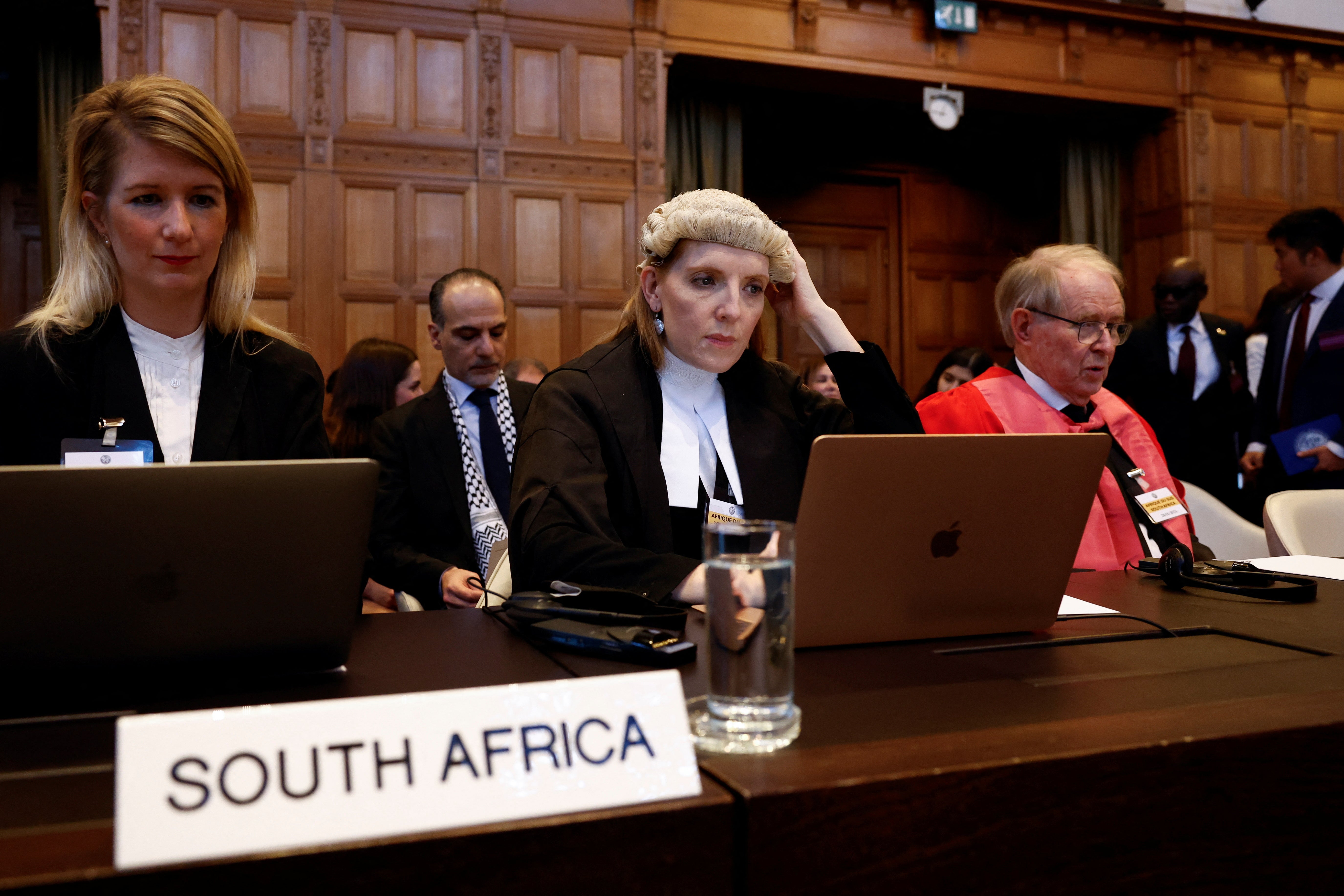Don’t knock the judges who ruled on genocide and Israel – applaud them
They reached no view on whether there has been genocide in Gaza – nor did they call for a permanent ceasefire – but they have treated the case with the seriousness it deserves, writes Sir Malcolm Rifkind


Today’s ruling by the International Court of Justice (ICJ) is rather like the curate’s egg. It is good in parts. And not only South Africa and the Palestinians – but also the Israelis – will take considerable comfort from it.
Israel’s critics will be pleased that the ICJ has accepted jurisdiction to give further consideration to the claim that Israel is committing genocide against the Palestinians in Gaza. But nothing that the judges have said implies that there is even a presumption that genocide has been established.
As it is being assumed that it may be years, rather than months, before any judgment is reached, that will be of little comfort to Hamas and its friends.
In the meantime, Israel will be pleased and relieved that the ICJ has not issued any demand for an immediate ceasefire in the war, as South Africa had requested. South Africa’s foreign minister, Naledi Pandor, has already expressed her disappointment that the ICJ has refused this central demand.
The ICJ has recognised that, under international law – and within the legal framework – the war is legal, as Hamas initiated the conflict when it attacked Israel on 7 October and massacred more than 1,000 of its citizens. Hamas has neither promised not to repeat the massacres, nor has it surrendered. In these circumstances, there is no obligation under international law for the Israelis to agree to a ceasefire.
The Israelis will also be pleased that the ICJ expressed “grave concern” about the fate of the Israeli hostages kidnapped by Hamas and called for their immediate release. It is, of course, the case that the ICJ has called for a number of important measures to be respected and observed by the Israelis.
The most important are that Israel “must take all measures” to prevent acts that could be considered genocidal; that its military does not commit any genocidal acts; that there must not be any destruction of evidence that could be used in a genocide case; and that there should not be any public comments that could be considered to be incitement to commit genocide in Gaza.
In no part of its ruling, so far as I am aware, has the ICJ concluded that Israel has already failed in any of these obligations.
These are the matters that will be argued, by both sides, before the court in the months to come. Israel, unlike Hamas, has always stated that it complies with international law as regards the conduct of war. It should have no difficulty in saying that it accepts these requirements.
In making these comments, I am not wishing to suggest that Israeli military tactics have been above criticism, nor that there have not been many Palestinian civilians killed or injured by Israeli troops in their determination to eradicate Hamas. Israel may wish, quite genuinely, to comply with international law during this war; but it may, in many individual cases, have made serious errors of judgement in specific military operations.
The fact that three Israeli hostages were mistakenly shot and killed by an Israeli soldier in Gaza shows what can happen in the heat of war.
Genocide has been defined as “the deliberate killing of a large number of people from a particular nation or ethnic group with the aim of destroying that nation or group”. Israel’s target has been Hamas, not the Palestinians.
Hamas has been designated a terrorist organisation in the United Kingdom, as in many other countries, as have al-Qaeda and Isis in recent years. Britain, the United States and most of the international community have seen the eradication of al-Qaeda and Isis as necessary and justified. Sadly, the eradication of Isis in Mosul resulted in many civilian casualties as well.
The ICJ has reached no view on whether there has been genocide in Gaza. Nor has it called for a permanent ceasefire – though that is what many people might wish. The ICJ should be complimented on behaving like a proper court of justice and leaving the political and propaganda battles to others.






Join our commenting forum
Join thought-provoking conversations, follow other Independent readers and see their replies
Comments